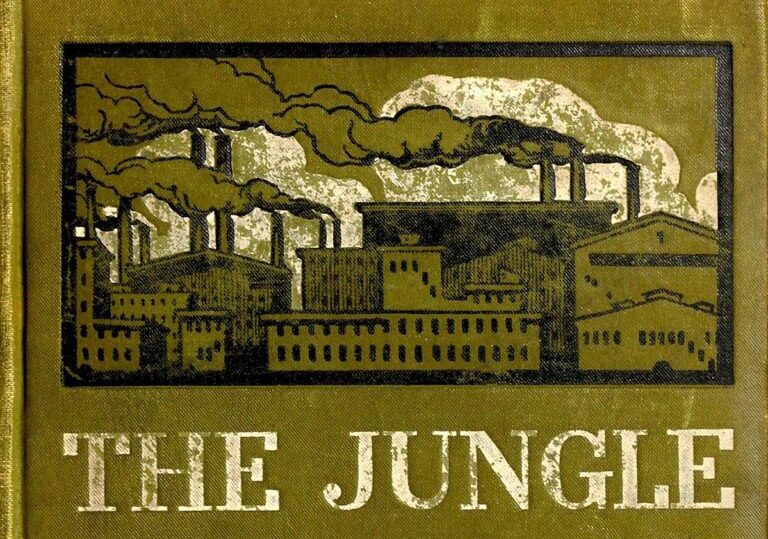‘The Jungle’ – A Work Of Fiction That Accidentally Changed US Food Safety Law Forever
‘The Jungle’ – A Work Of Fiction That Accidentally Changed US Food Safety Law Forever
Where did Food Regulations come from? In this blog, we share the story of a work of fiction and how this came to influence the world of regulatory compliance in the US.

The Jungle by Upton Sinclair is a harrowing story of an immigrant and the USA meat industry.
Globally, it is largely unknown and this is not particularly surprising. Published in 1906 in the USA it was written as a socialist novel by an author aiming at the nation’s hearts by highlighting appalling social iniquities. Sinclair drew his inspiration from a worker’s strike in Chicago’s stockyards in the summer of 1904, and he spent some time there himself once the strike was over researching the meat trade. His experience inspired his novel which follows Jurgis Rudkus, a Lithuanian immigrant, as he struggles with conditions of physical danger, insecurity, exploitation and filth. He describes moments such as workers falling into rendering plants as a result of unsanitary and unsafe conditions. It is a relentlessly harrowing read and you wonder if the dreadful conditions he describes in the meat packing industry could possibly have been that bad.
A realisation of the truths behind the tale and a need for change to US food safety law
Theodore Roosevelt, who was president at that time, received a copy of The Jungle and despite his personal reservations about Sinclair as an outspoken socialist, felt unsettled by the story. He began investigations to validate the truths behind the tale; what he found confirmed that Sinclair was speaking honestly about the filthy unhygienic conditions that prevailed at that time in the meat trade. The book was a huge success for the public and was a direct influence on getting the previously stalled Pure Food & Drug Act and the Meat Inspection Act through Congress with both becoming law on June 30th 1906. Whilst these laws are short by today’s standards they undoubtedly shaped US food law as it now is. As Sinclair famously put it, he “aimed for the nation’s heart but hit their stomach instead” and played no small part in changing US food safety law forever.
Ashbury has a truly global reach and includes an office in the US offering local expertise to help support clients looking to import, export or sell domestically.
Next reads
The Peanut Diaries: School and Social Occasions
The Peanut Diaries: Navigating Social Events and Celebrations with Food Allergies
The Peanut Diaries: A Parent’s Journey to Uncovering their Child’s Allergy
Redefining Healthy: What the FDA’s New Rules Mean for Food Labels and Nutrition Claims
Keep up to date with our latest insights
Subscribe to our mailing list to stay in touch with the latest news, insights and updates from Ashbury





